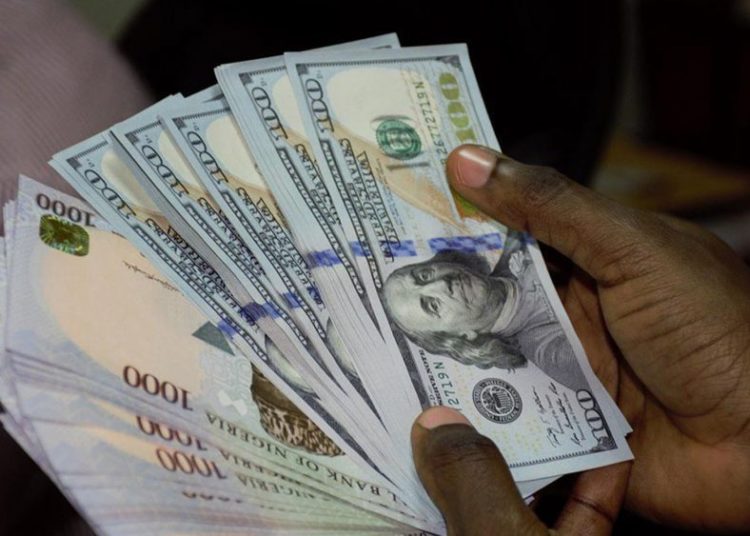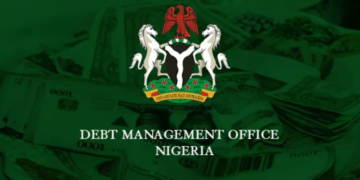A recent report by a foreign rating agency had declared that Nigeria’s currency, the Naira, is the most devalued anywhere in Africa. Its current rate of N1,235 to the dollar may have confirmed that assessment. Even the CFA franc used by the country’s francophone neighbours has since overtaken the Naira in the scale of value vis-à-vis some major currencies of the world.
For a currency that used to be accepted as a medium of exchange in places like London, a major world financial centre, the present state of affairs is, to say the least, disheartening.
It needs be stated that this unsavory development is recent as, not too long ago, the currency was treated with the decency it deserved in its competition with others elsewhere.
In those days that are beginning to seem like centuries ago, the productive sector of the country was booming, at least by African standards. Investors, (not fly- by- night portfolio investors) were flowing in to take advantage of the favourable investment climate in the country then.
The textile factories that survived on the lush cotton farms in parts of the North, the automotive companies that sourced a sizeable portion of their inputs from Nigeria were doing good business, transferring technology and creating jobs. Tyre producing companies, the Dunlops and Michelins of this world, promoted the cultivation of rubber in parts of the south south and were empowering local, small holder farmers.
READ ALSO: Naira Depreciates Further To N1,235/$1 In Parallel Market
There were many industries producing household products most of which sourced their raw materials from cocoa, palm oil and groundnut all grown in the country. Food drinks were not left out in that drive to really grow the economy and build its Gross domestic Product (GDP). The success of that effort reflected on the value of the Naira, there was minimal stress on the local currency. Foreign currencies were not as dominant as they are today.
Without warning, or to put it correctly, policy inconsistency and ill-advised import substitution preferences, subdued the agricultural sector and, by implication, the industries that relied on it. This was made possible by the years of easy petro-dollar that lulled everyone into a state of complacency, especially policy-makers, who began to feel that money was not the problem but how and on what to spend it.
Before the nation realized sufficiently that the economy was on a downward spiral that kept chipping off the value of the Naira, it was already too late as there was not enough dollar and pound to finance the indecently acquired taste for imported goods and services.
A lot of measures were put in place to manage the drift which ended up compounding the problem that is presently trying to strangulate the Naira.
To the consternation of the citizenry, already used to bank transactions when the need for foreign currencies arose, black market emerged from nowhere and took over the space. Their rates have become the benchmark for assessing the true value of the Naira.
That market has defied every effort by the regulatory agency, the Central Bank of Nigeria (CBN), to control its dominance of the foreign exchange market, to no avail. Instead, round-tripping, a process of obtaining foreign currencies at the official rate and selling them at the black market at higher rates, has continued unabated.
The situation is made worse by the deposit money banks (DMBs) who randomly refer their customers to this market if they needed foreign currencies above a certain limit. Curiously, this so-called black market, an outlet for underhand transactions elsewhere patronized by shady characters, is accepted as the real deal in Nigeria.
All these have contributed to the weakening of the Naira with the disastrous effect that it is having on the economy generally. Cost of living has become outrageously high. Businesses are struggling to keep their heads above water.
Unfortunately, in our view, there is no quick way out of the quagmire other than for the nation to reorder its priorities. Already, the nation’s foreign reserve is depleted. What this means is that the nation must look inwards if the present situation is to be reversed.
Without productive activity, there is not much anyone can do to save a situation that is becoming increasingly dire. If we desperately need foreign exchange as we presently do, then we must be ready to earn it.
The continued importation of petroleum products is a drain on scarce foreign exchange. Non essentials like medical and educational tourism at state expense must be de-emphasised. Rebuilding the nation’s hospitals, schools and refineries will help.
In our considered opinion, a serious and determined approach to the diversification of the economy away from hydrocarbon is a policy that must necessarily escape the lip service it is presently receiving. Non-oil sectors such as solid minerals, agriculture and tourism must take the front burner of economic discourse.
Above all, it is the view of this newspaper that the nation must wean itself off its import dependency and focus on economic activities that promote local sourcing of raw materials and produce for export. That is the way out of what is going on now. That is the way to restore the value and prestige of the Naira. What is required is the political will to do the needful.





